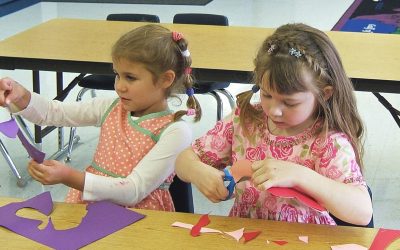“What did you learn at school today?
“I dunno.’
“How was your day?”
“Okay.”
As each school year unfurls, parents wonder how best to support their children’s learning trajectories. For example, parents’ questions might pertain to programming initiatives, skill development, social-emotional issues, motivation, or other educational matters that are particular to their children. And, although each child, family, and situation differs, there can be commonalities among the sorts of concerns parents have.
Here are three important considerations that tend to be at the forefront:
a) What can I do to ensure my kids have successful school experiences?
b) What if school is too easy or too hard?
c) How can I empower my kids to develop their interests, and turn them into meaningful pursuits and talents?
You may already have some well-targeted answers to those three questions. However, here’s additional information to ponder.
Keys for successful school experiences and a happily productive year:
#1. Be an advocate. Speak up for programs that offer choice and diversity—including various kinds of instruction, applications, and assessment; appropriate challenge; and ample opportunities for creative expression.
#2. Help strengthen the learning spirit within your child’s school. Show appreciation for the “three Rs.” That is, champion teachers who are receptive to children’s individual learning preferences and specific needs; respectful of their feelings; and responsive to their questions.
#3. Strive to maintain open home-and-school communication. Stay informed and connect regularly with teachers and others involved in your child’s learning journey. A climate of mutual trust and appreciation benefits everyone.
When school is too easy (boring), or too hard (difficult):
#1. Know what matters for your child—and prioritize this. Help them focus on what they need and want to learn. Determine what materials or resources they require. Encourage them to self-advocate, and to chat with you (and their teachers) about what they feel would be fair for them.
#2. Be resourceful. Encourage kids to find ways to connect their learning activities to their interests and areas of strength. Brainstorm together! Stoke the imagination to figure out how to make tasks intriguing or fun rather than tedious or daunting.
#3. Co-create reasonable expectations. Goals should be attainable. It may take time and effort to reach them, but that’s okay—and step-by-step is a doable strategy! Stretch learning boundaries comfortably, making sure that creativity and enjoyment are part of the mix.
Turning interests into meaningful pursuits and talents:
#1. Explore. Encourage your child to follow their aspirations, and to think carefully about what they enjoy doing. (Math? Music? Art? Reading? Robotics? Sports?) Investigate various possibilities. Consider how to build confidence. For example, who can be a collaborator? A mentor? An encourager? An assistant?
#2. Extend. How can fun and learning be extended to next levels? Playfulness is good, but it may also make sense to seek tailored instruction from someone who can help children develop their interests and abilities in a more thorough (or perhaps disciplined) manner.
#3. Connect. Be proactive by reaching out and sharing ideas with others who have the same or similar areas of interest, and who can offer support along the way.
Last Words
“What did you learn at school today?”
“Lots!”
“How was your day?”
“Great!”








